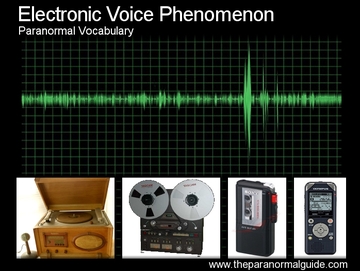
These are thought to be voices from the other side, that recorders are sensitive enough to pick up, but the human ear cannot otherwise hear.
EVP Defined
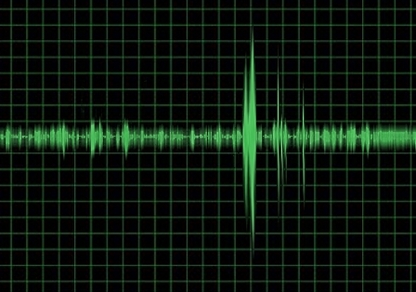 Waveform of a possible EVP.
Waveform of a possible EVP. Personally, I only label something an EVP if it was not heard by a living person, and only captured on the recording medium, or heard through a speaker or headphones. Some others will still class something as an EVP if it was heard at the time, by their ears, but in those instances, I refer to them as disembodied voices. an EVP is only captured on a recorder or heard through a speaker or headphones..
A typical EVP session will involve a person setting up somewhere, turning on an audio recorder, and asking a series of questions, a lengthy pause between each, and hoping to find ghostly answers upon playback.
A History of EVP
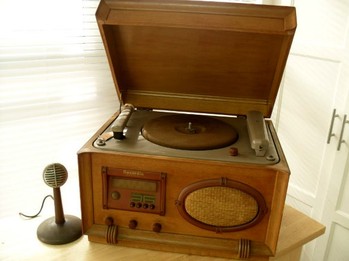 Early record cutter with microphone.
Early record cutter with microphone. However, experiments that focussed solely on capturing these ghostly voices on recording medium, did not really start until the 1940's when American photographer, Attila Von Szalay, started experimenting with recording medium to capture the disembodied voices he heard around him.
At first he tried recording the voices to records, using a record cutter. The work was hard, and no doubt many records were cut and wasted as the voices were not too prevalent, however soon Szalay came up with something that seemed to work.
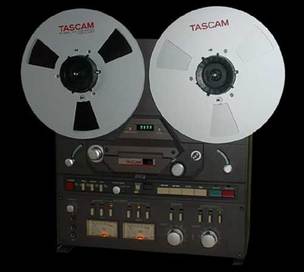 Reel to Reel tape recorder.
Reel to Reel tape recorder. It was in the mid fifties when Szalay moved to a tape recorder that he achieved greater successes.
The voices were not limited to single words, but at times whole sentences and phrases. In Italy, Marcello Bacci was also having some success recording voices, and even invited people to his home to talk to the dead.
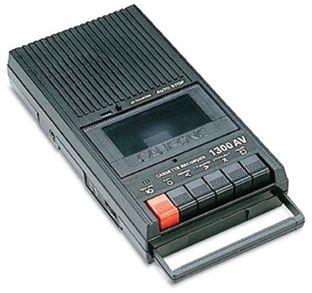 Tape recorder.
Tape recorder. In 1980, the Spiricom, a two way communication device with the dead was invented by William O'neil. What was interesting was that O'neil stated he received instructions and specifications to build the device from the ghost of a dead scientist. Through the device, O'neil believed he was able to talk to the dead, however, even though he freely distributed the plans, not too many people were able to replicate the results.
Criticisms
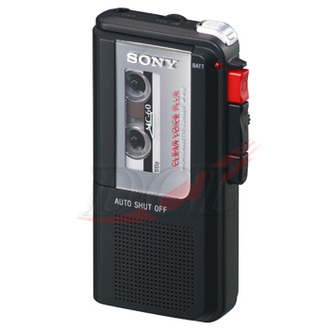 Dictaphone.
Dictaphone. We have sort of gone off track here, but that is a bit of a history of EVP. Recently, the implementation of newer sound recording technologies has seen a explosion in the number of devices and ways to record these possible ghostly voices. Tape recorders became cheap and more portable, cd and minidiscs offered greater clarity in sound, and todays digital recording mediums are small enough to take anywhere... heck, even your phone most likely has one.
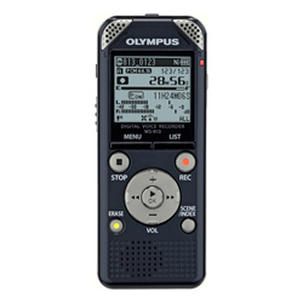 Digital voice recorder.
Digital voice recorder. We have a habit, our brains are wired to finding recognisable patterns in the signals sent to them from our senses. The main argument is that the sounds we are hearing are being misinterpreted by our brain into voices and words.
So how do we really know what we are dealing with?
Is there a way to classify these EVP's systemically so we can be more sure of what we have got?
The EVP Class System
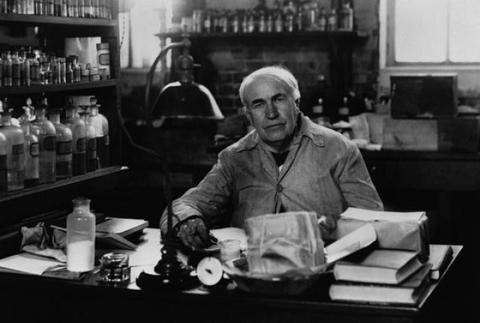 Thomas Edison.
Thomas Edison. Class A EVP's are easily heard, the words are clear and no filtering or boosting of volume is needed to make them out. They are also generally words in response to a question, the source seemingly intelligent.
Class B EVP's are harder to make out. The voice can be made out but filtering or boosting of volume is needed to make them clearer. There may also be some disagreement to what the voice is saying.
Class C EVP's are hard to make out, are easily missed and need the highest filtering or volume boosting to even sound 'human'.
EVP's, well the good ones anyway, are considered by many to be some of the best proof for continued existence of the soul, spirit, our energies after death. Nearly every single investigator/researcher will have some sort of audio recorder handy on investigation for an EVP session – asking questions and hoping for responses of a paranormal origin.
To finish, here is a quote by quite a famous man, who is believed to have had plans and perhaps created a device for talking to the other side:
"If our personality survives, then it is strictly logical or scientific to assume that it retains memory, intellect, other faculties and knowledge that we acquire on this Earth. Therefore, if personality exists after what we call death, it is reasonable to conclude that those who leave the Earth would like to communicate with those they have left here. I am inclined to believe that our personality hereafter will be able to affect matter. If this reasoning be correct, then, if we can evolve an instrument so delicate as to be affected by our personality as it survives in the next life, such an instrument, when made available, ought to record something.”
Thomas Edison - his device, if it existed, was never found.
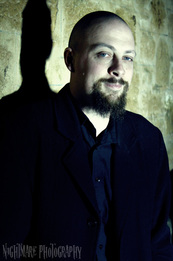
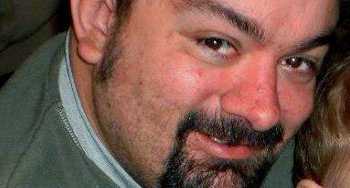


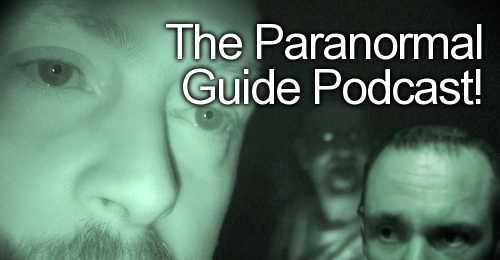
 RSS Feed
RSS Feed
